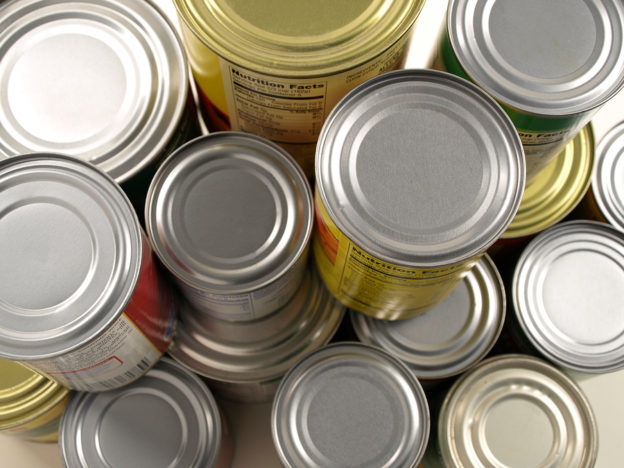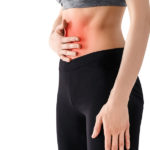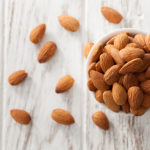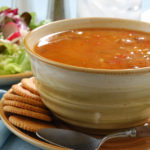By David Blyweiss, M.D., Advanced Natural Wellness
June 12, 2020
Every time I walk through the grocery store, I can’t help but shake my head if I’m walking on the inside aisles. All I see are rows and rows of fake foods.
Seriously! Most of the stuff we call food these days is nothing more than manmade flavorings, fillers and colors. You can barely even call them food.
The only real foods you’ll find have the label “organic” plastered all over them.
Sure, these fake foods taste great – they’re made especially in the lab to tempt you. But none of them are good for you and some are outright terrible.
I’m talking about ultra-processed foods.
If you practice healthy eating habits, you’ve already guessed that this category includes things like white bread, cake, candy, cookies, chips, ice cream, pizza, hot dogs and other “junk food”.
And I’m sorry to say… some of the benign-sounding foods you enjoy may actually be ultra-processed.
Open your arteries, improve blood flow for a new health miracle...
Did you know your circulatory system has over 60,000 miles of arteries, veins and other blood vessels, if stretched end to end?
But as you age, your blood vessels undergo changes, which may cause them to stiffen, thicken and get clogged.
GOOD NEWS! Doctors have now identified a “Miracle Molecule” inside your arteries that helps OPEN your arteries and IMPROVE blood flow.
It’s what Dr. Valentin Fuster calls it, "One of the most important discoveries in the history of cardiovascular medicine."To you, that means...
- Healthy blood pressure
- Sharper mind and memory
- Skyrocketing energy and muscular strength
- Increased pleasure and passion in the bedroom
- Improved circulation to every cell and organ in your body
Go here to discover a new natural way to significantly boost the levels of this miracle molecule in YOUR body NOW!
For example, do you snack on energy bars? Is cereal ever on your breakfast menu? How often do you enjoy a soda… a fruit drink… or an energy drink? When is the last time you ate yogurt with fruit at the bottom?
How about canned or dehydrated soups? Pasta or instant noodles? Prepared meat, fish, vegetable or cheese dishes? Cured meat? Chicken nuggets? Sauces? Canned fish that’s packed in oil?
You probably don’t view these foods as the healthiest in the world. But still, they’re not entirely off-limits, are they?
And you may eat more of them than you even realize. It’s estimated that more than half of the calories we consume here in the U.S. are from ultra-processed foods.
These sneaky processed foods don’t rely on just salt, sugar and fat to make them taste good and allow them to last on the shelf. They also contain a slew of additives: flavorings, bulking agents, emulsifiers, colors, anti-caking agents and so forth.
All of those fake, non-food ingredients can take a devastating toll on your health. They’re associated with heart disease, cancer and premature death. They also cause over-eating and weight gain.
As a matter of fact, when a group of people ate a diet of ultra-processed food compared to those eating unprocessed foods, they ate over 500 more calories per day and gained a pound a week.
But here’s the odd thing… both diets in this study contained nearly the same percentages of carbohydrates, fat, protein, fiber, micronutrients, sugar and sodium.
So why the weight gain, increased appetite and other ill effects?
Here’s What Happens When You
Introduce Fake Foods to Your Gut Microbiome
The World's Quickest Solution for Ending Prostate and Urinary Misery
This has recently been revealed to be one of the only real breakthroughs in prostate health.
The seeds of a strange fruit (sometimes called "Chinese Apples") hold powerful phytonutrients that are a revolution in prostate health.
In fact, UCLA and Veterans Administration research have now proved this to be true.
Not only that, but it may be the worlds quickest solution for ending prostate misery.
Simply stated, these phytonutrients represent a huge step beyond beta sitosterol, saw palmetto, and other phytosterols alone.
Simply click HERE if you want to have fast prostate relief...restful, uninterrupted sleep...no more constant "urges to go"...enhanced virility...and optimal prostate support for life.
Let’s say you’d like to enjoy a hot bowl of vegetable soup for lunch.
You have two options to prepare this soup.
In the first option, you could whip up a batch of homemade broth with hand-sliced vegetables. It’s a wholesome, nutrient dense meal. And your gut microbes will love it!
Your second option is a little less involved. You simple open up a package of soup mix and toss it into the pot of boiling water.
The veggies in this soup mix are dehydrated, but they’re not too different than the ones used in the homemade soup described above. But listed next on the ingredient label, you’ll notice a lot of non-food additives.
Maltodextrin, disodium guanylate, disodium inosinate, artificial flavor, silicon dioxide, sulphites, hydrolyzed vegetable protein, monosodium glutamate, sodium citrate, corn syrup, yeast extract, mmh, mmh….
These compounds are so completely unnatural to your digestive tract that your gut microbes have no idea how to react. Unhealthy bacteria begin to flourish and take over your gut microbiome. Eventually, these bad microbes start dictating your food choices.
You see, bad microbes want more of the bad foods that helped them thrive in the first place. So, they activate nerve signals that link your stomach to your brain (the gut-brain axis) – basically telling your brain to eat more of these foods to satisfy their cravings. So yes, that pre-bedtime slice of cake is from their prompting you to feed them.
Plus, these gut bacteria affect the production of hunger provoking and hunger suppressing hormones. When you eat too many ultra-processed foods, the hormone that suppresses hunger is decreased, and the one that makes you feel hungry is increased.
The exact opposite happens when you eat whole, natural foods.
These bacteria can even hijack your vagus nerve, which regulates your eating behavior and body weight. So you start – and keep – eating more and more of these foods. It doesn’t take long before the pounds start racking up.
At the same time, chronic low-grade inflammation sets in. And as you know, inflammation is at the root of all disease… heart disease, cancer, diabetes, Alzheimer’s and more.
This makes ultra-processed foods a very real threat to your health and mortality.
I always recommend choosing fresh, organic whole foods over anything that comes in a box, can or package. But I know that it’s not always easy or possible. So here is what I recommend:
Whenever you purchase a canned or packaged food item, read the ingredient list. If five or more of the ingredients aren’t “food”, it’s considered ultra-processed.
Choose products with fewer overall ingredients and more natural foods within. And even healthier still, choose whole foods whenever possible.
Stopped by a roadside farmers market today and reminded myself what a ripe from the vine organic peach tasted like…the juice bite dribbled down my chin a little; it was glorious.
SOURCES:
Srour B, et al. Ultra-processed food intake and risk of cardiovascular disease: prospective cohort study (NutriNet-Santé). BMJ. 2019 May 29;365:l1451.
Fiolet T, et al. Consumption of ultra-processed foods and cancer risk: results from NutriNet-Santé prospective cohort. BMJ. 2018 Feb 14;360:k322.
Rico-Campà A, et al. Association between consumption of ultra-processed foods and all cause mortality: SUN prospective cohort study. BMJ. 2019 May 29;365:l1949.
Hall KD, et al. Ultra-Processed Diets Cause Excess Calorie Intake and Weight Gain: An Inpatient Randomized Controlled Trial of Ad Libitum Food Intake. Cell Metab. 2019 Jul 2;30(1):67-77.e3.
Zinöcker MK, et al. The Western Diet–Microbiome-Host Interaction and Its Role in Metabolic Disease. Nutrients. 2018 Mar; 10(3): 365.







